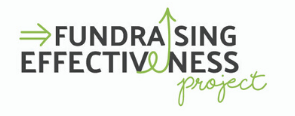First Quarter Fundraising Shows Record Growth in Donors, Retention

Trends Continue to Show Giving Is Not Even Across the Sector, With Some Charities Hurting Significantly
The number of donors grew by a projected 10% from the first quarter of 2021 compared to the first quarter of 2020, while the retention of new donors grew by 13.6% over the same time period—just two signs from the Fundraising Effectiveness Project’s (FEP) 2021 First Quarter Fundraising Report that fundraising continues to fare well overall.
The Fundraising Effectiveness Project (FEP) is a collaboration among fundraising data providers, researchers, analysts, associations, and consultants to empower the sector to track and evaluate trends in giving. The FEP releases quarterly findings on those giving trends, released both via downloadable reports at https://afpglobal.org/fepreports and in a free online dashboard available at http://data.givingtuesday.org/fep-report.
Key findings in the 2021 First Quarter Fundraising Report include:
- Overall dollars and donors increased. Giving in the first quarter of 2021, compared to first quarter of 2020, rose by 6%. Even more notable, Q1 saw a 10% rise in donors—a record level for first quarter numbers over the ten years of FEP data.
- New donor retention rate increased 13.6%. After a year of strong acquisition in 2020, donors continue to give to the same organizations in the first quarter of 2021.
- Not all organizations fared equally in Q1 2021. Data from the report also shows that the increases in giving do not apply equally to all organizations, with organization size and cause disparities continuing, but not to the same degree seen in 2020. Giving to Human Services and Religious organizations increased, while contributions were down for all other types of charities.
“The overall growth is real, but this doesn’t reflect the typical organization’s experience during this turbulent time,” said Jon Biedermann, chair of the Fundraising Effectiveness Project and president and CEO of The Biedermann Group. “We also saw this in 2020, where the average growth in donations and dollars was positive, but the median was negative—meaning some organizations experienced some tremendous growth, while others saw anemic or decreasing giving levels. Depending on how long the pandemic lasts, this imbalance in funding could continue and have a significant, long-lasting impact on the sector. Still, despite so many challenges, Americans continue to give, and that generosity gives charities many opportunities to demonstrate their impact to donors and inspire more giving.”
Latest FEP Report Features New Metrics and Categories
The FEP has expanded several aspects of its report, leading to new data and insights into quarterly fundraising. The analysis features updated methodology that better reflects a typical organization’s experience, accounts for unusual trends and volatility due to crisis, and contextualizes results by organization size and cause.
The latest report now offers a more granular segmentation of donors in five categories: Micro (under $100), Small ($101 - $500), Midsize ($501 - $5,000), Major ($5,001 - $50,000) and Supersize (more than $50,000).
The data shows a 9.7% increase in Micro gifts and a 4.4% growth in Small gifts from the first quarter of 2020 compared to the first quarter of 2021. However, collectively, the two categories make up less than 12.3% of total dollars.
“Many of the new donors tend to give smaller gifts, which is why donor retention and cultivation are so important,” said Woodrow Rosenbaum, chief data officer of GivingTuesday. “Major donors are critical, of course, but smaller level donors often represent the future of giving for an organization, so it’s important they are nurtured and retained.”
The new quarterly reports also feature data on organizational fundraising levels by subsector and size. In the first quarter of 2021, Human Service charities were the only type of organizations to see increases in both average and median dollar growth, while other subsectors continued to contract.
About the Report
The FEP 2021 First Quarter Fundraising Report is available for free at https://afpglobal.org/fepreports, with a free online dashboard available at http://data.givingtuesday.org/fep-report.
The data analysis includes giving details from 9,561 nonprofit organizations based in the U.S. as a subset of the Fundraising Effectiveness Project. The FEP’s database of organizations is made up of organizations that raise between $5,000 and $25 million.
In 2021, the FEP implemented a number of methodology changes to provide a better representation of the ‘typical’ experience of organizations and granular trends in donation patterns.
The Fundraising Effectiveness Project
The Fundraising Effectiveness Project publishes quarterly and annual reports that examine key fundraising metrics, serving as a benchmark for nonprofit executives, development staff and researchers. The Fundraising Effectiveness Project and the Growth in Giving database are both administered by the Association of Fundraising Professionals Foundation for Philanthropy in collaboration with GivingTuesday.
The Growth in Giving database is the world’s largest public record of donation activity, with more than 204 million donation transactions, and is continuously updated by leading fundraising software thought leaders (in alphabetical order) Bloomerang, DonorPerfect, and NeonCRM. Additional partners include the 7th Day Adventists, The Biedermann Group, DataLake Nonprofit Research, and DonorTrends (a division of EveryAction). For more information and how you or your fundraising software provider can participate, please visit https://afpglobal.org/fep.


